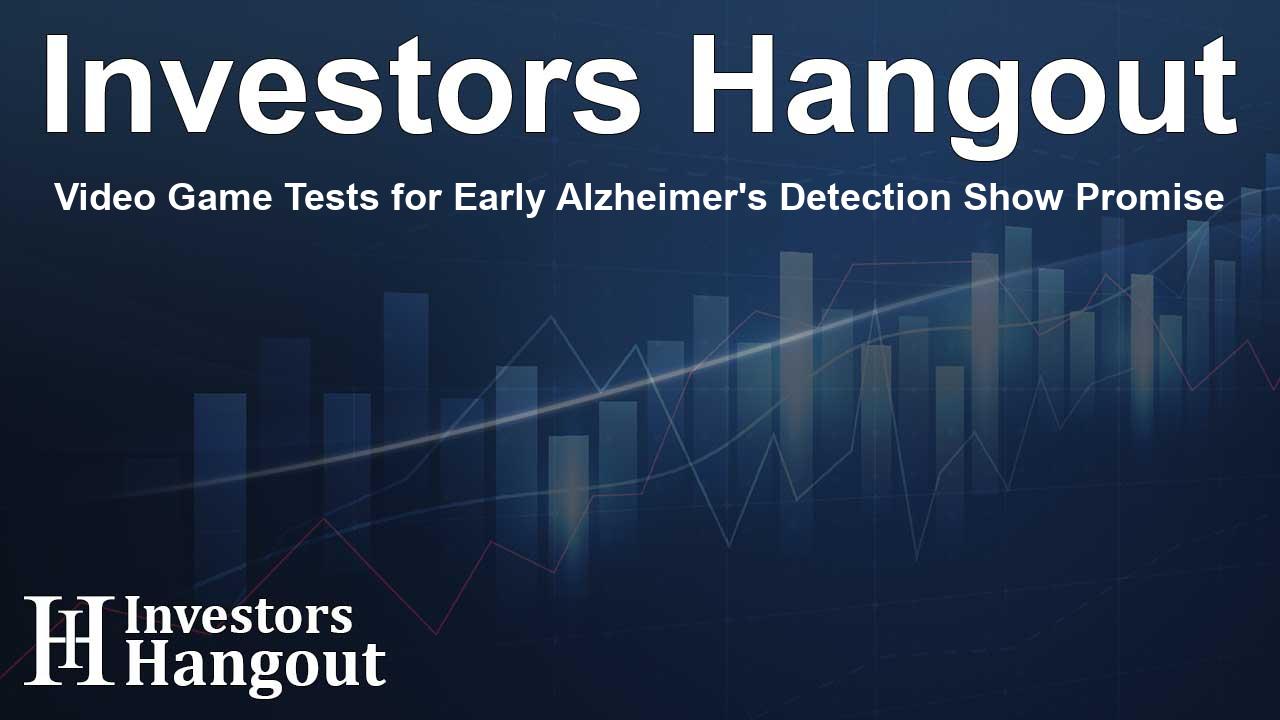Video Game Tests for Early Alzheimer's Detection Show Promise

Revolutionary Video Game Tests for Alzheimer's Detection
Recent developments from researchers at Rutgers University–Newark have unveiled innovative tests using video games designed to detect Alzheimer's disease at incredibly early stages, potentially years before critical symptoms emerge. This non-invasive approach provides a fresh alternative to traditional methods, such as blood tests, that typically reveal physical markers of the disease.
How the Tests Work
The video game tests developed by Rutgers-Newark are crafted to assess cognitive abilities by engaging players through interactive tasks. Participants must deduce rules based on varying colors and shapes, which tests their cognitive flexibility and problem-solving skills. These tasks can highlight subtle changes in brain function that occur long before noticeable symptoms appear, offering a proactive approach to identifying at-risk individuals.
Advantages Over Traditional Testing
One of the remarkable advantages of this video game-based testing is its non-invasiveness. Unlike blood tests, no samples or trained medical professionals are necessary for administration, making it more accessible for patients. Furthermore, the researchers indicate that these tests can be implemented more cost-effectively, benefiting medical practitioners and helping to alleviate some of the financial burden associated with traditional diagnostic methods.
Impact on Clinical Trials
These tests could dramatically transform the landscape of clinical trials for Alzheimer’s medications. Neuroscientist Mark Gluck, director of the lab, noted that with the ability to identify individuals in the very early stages of Alzheimer's, researchers could enroll participants who are most suitable for trials. This shift could significantly reduce the timeline for discovering effective treatments, as trials currently rely on patients who have advanced symptoms, which may take years to develop.
Exciting Developments for Future Treatments
Lead author Miray Budak expressed enthusiasm about the potential for these tests, stating that they could serve as an early warning system, indicating cognitive difficulties before they are clinically recognized. This capability is crucial, particularly when changes in the brain can start a decade or more prior to any visible impairment.
Community Focus and Alzheimer's Awareness
The Aging & Brain Health Alliance, integral to the efforts at Rutgers-Newark, is dedicated to exploring the intersection of lifestyle and genetics in the context of Alzheimer's prevention. The alliance collaborates with various community organizations to emphasize brain health and promote cognitive resilience. Notably, they focus on underserved populations likely facing a higher risk, emphasizing education and support to improve overall well-being.
About the Aging & Brain Health Alliance
This alliance plays a pivotal role by not only advancing research but also enhancing community health initiatives. Their focus on African American communities, who have a higher prevalence of Alzheimer's, underscores their commitment to equitable health strategies. Through community engagement programs, they aim to foster awareness and promote protective lifestyles among those at risk.
The Role of Rutgers University–Newark
Rutgers University–Newark (RU-N) stands out as a dynamic public research institution within New Jersey, fostering innovation and addressing pressing societal challenges. The university thrives on its diverse community of students, faculty, and collaborators, enabling it to tackle complex issues like Alzheimer’s disease effectively. By leveraging urban connections and facilitating interdisciplinary research, RU-N continues to make significant contributions to both local and global health landscapes.
Frequently Asked Questions
What is the main benefit of the new video game tests?
The video game tests offer a non-invasive and cost-effective method for detecting early signs of Alzheimer's disease, bypassing the need for blood tests.
How do the tests measure cognitive ability?
The tests gauge cognitive abilities through tasks that require participants to deduce rules based on colors and shapes, reflecting their problem-solving skills.
What impact could these tests have on clinical trials?
These tests could enable researchers to identify suitable participants in early stages, drastically shortening the timeframe for clinical trials.
Who benefits most from the Aging & Brain Health Alliance initiatives?
The alliance targets high-risk populations, particularly African Americans, enhancing access to Alzheimer’s awareness and preventive strategies.
How does Rutgers University–Newark contribute to understanding Alzheimer's?
RU-N supports research that connects academia with community needs, facilitating innovative solutions and fostering public engagement to combat Alzheimer's disease.
About The Author
Contact Evelyn Baker privately here. Or send an email with ATTN: Evelyn Baker as the subject to contact@investorshangout.com.
About Investors Hangout
Investors Hangout is a leading online stock forum for financial discussion and learning, offering a wide range of free tools and resources. It draws in traders of all levels, who exchange market knowledge, investigate trading tactics, and keep an eye on industry developments in real time. Featuring financial articles, stock message boards, quotes, charts, company profiles, and live news updates. Through cooperative learning and a wealth of informational resources, it helps users from novices creating their first portfolios to experts honing their techniques. Join Investors Hangout today: https://investorshangout.com/
The content of this article is based on factual, publicly available information and does not represent legal, financial, or investment advice. Investors Hangout does not offer financial advice, and the author is not a licensed financial advisor. Consult a qualified advisor before making any financial or investment decisions based on this article. This article should not be considered advice to purchase, sell, or hold any securities or other investments. If any of the material provided here is inaccurate, please contact us for corrections.
